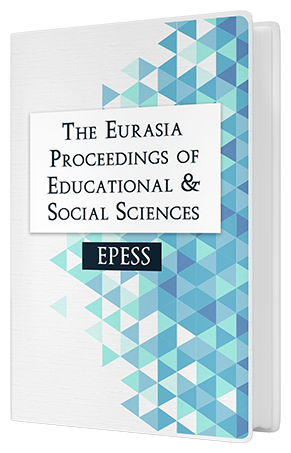Methodology of Teaching on Telemedicine Technologies for Medical Students
Keywords:
Telemedicine, Videoconferencing, Interactive education, Distance learningAbstract
The Department of Medical Informatics has developed new curriculum module "Telemedicine" for students of 4-5 courses, which is implemented on the basis of the Telemedicine Center of the Medical Institute of the RUDN-University. It's designed for 1 credit ECTS, 17 hours for practice, and the rest for students' self-education. The following topics are included: the fundamentals of telemedicine, and the world trends in its development; technological equipment of telemedicine events; hardware and software of telemedicine; economic and legal aspects of telemedicine; scenarios of telemedicine activities After theoretical lectures, students receive practical skills in the course of business games in preparation and conduct of video conferencing. During the classes we demonstrate to students the technologies of remote interactive learning, in particular television lectures and master classes from the leading clinics of Russia, countries of Europe, India, Brazil and Canada. Telemedicine Center for video conferencing equipped with all modern ITU standards. It is equipped with video conferencing complex, Full HD camcorder, professional document camera with built-in illumination plate for displaying x-rays. During two years we have taught over a thousand students. Besides students from Russia, the module was mastered by students from Asia, Africa, America and Europe. Teaching approach allows to obtain theoretical knowledge and practical skills of video conferencing and distance education methods, to get familiarized with international experience and trends in the development of telemedicine technologies. Methodology of training is described.Downloads
Published
Issue
Section
License
Copyright (c) 2018 The Eurasia Proceedings of Educational and Social Sciences

This work is licensed under a Creative Commons Attribution-NonCommercial-ShareAlike 4.0 International License.
The articles may be used for research, teaching, and private study purposes. Any substantial or systematic reproduction, redistribution, reselling, loan, sub-licensing, systematic supply, or distribution in any form to anyone is expressly forbidden. Authors alone are responsible for the contents of their articles. The journal owns the copyright of the articles. The publisher shall not be liable for any loss, actions, claims, proceedings, demand, or costs or damages whatsoever or howsoever caused arising directly or indirectly in connection with or arising out of the use of the research material. All authors are requested to disclose any actual or potential conflict of interest including any financial, personal or other relationships with other people or organizations regarding the submitted work.




